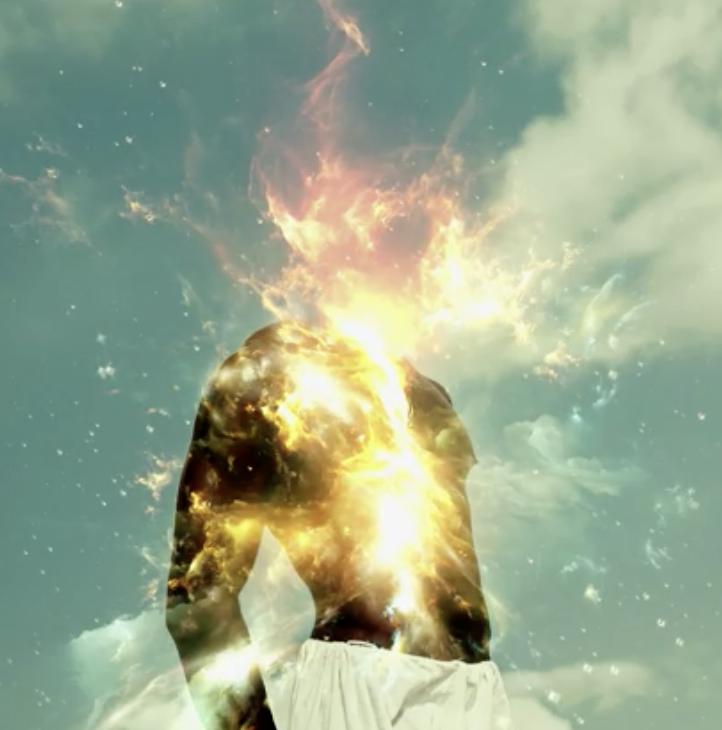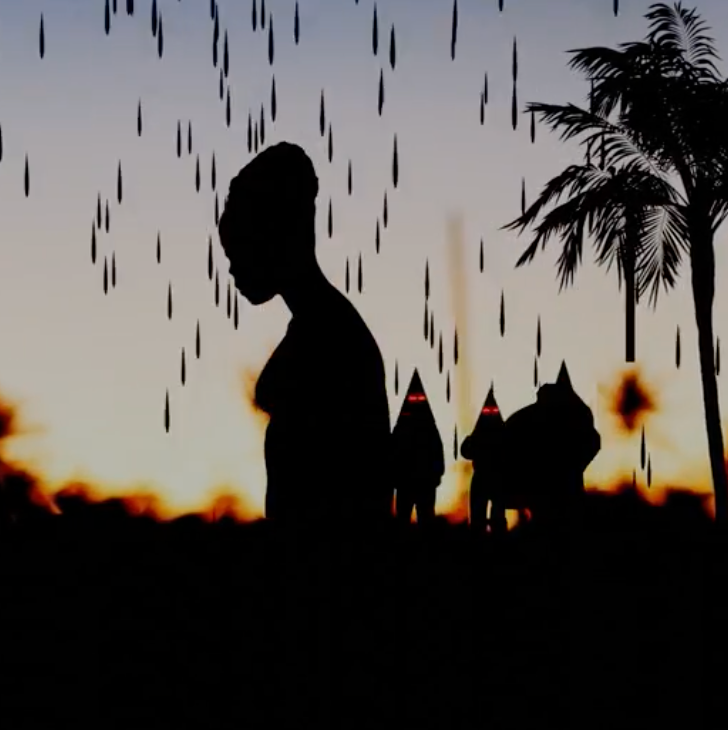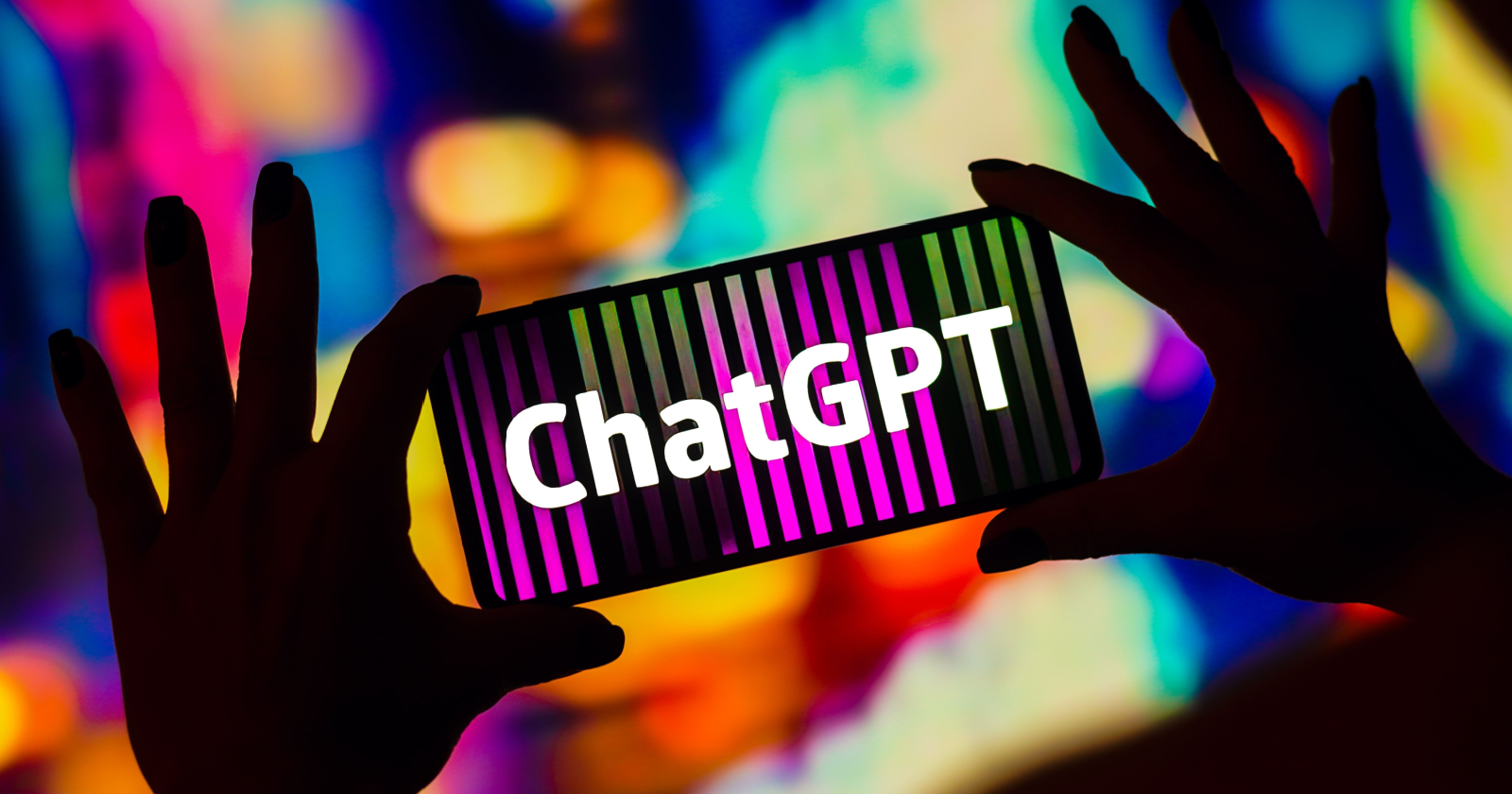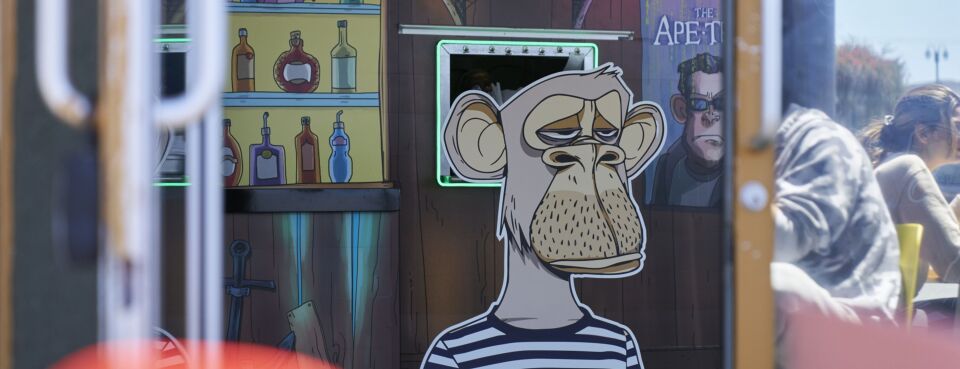Welcome to Black Future Month at Meteor
While most publications look back in time to celebrate the African American contribution to culture, politics and science, at Meteor our eyes are always on the road ahead. Throughout the month, we will profile Black innovators, artists, creators and disruptors who are set to impact the century ahead.
"We really need to determine exactly what NFTs are. Are they artistic expressions, or are they functional commercial products?”
Gai Sher, senior counsel at Greenspoon Marder LLP, discussing the controversial trademark lawsuit of Hermes vs. MetaBirkins.
In Today's Meteor
- Create: Inside the spiritual mind of Marcelo Lewis
- Think: Are NFTs a promised land for black artists?
- Compress: Is it Benedict Cumberbatch or AI?
- Disrupt: China goes quantum
Create
Inside the Spiritual Mind of NFT Artist Marcelo Lewis

When Marcelo Lewis talks about Hurricane Ian he almost cries.
It was September of last year. The young artist, who goes by @3DBystander on Twitter, was helping clean up around MLK, a neighborhood in his hometown of Ft. Myers, Fla. "I saw a woman crying over her child’s dead body – a young boy, six or seven years old. The child was in the receding water." he says. "This was the part that broke me."
"It had a larger impact on me than my religious practice," says the AI artist who also works with 3D modeling and Photoshop.
Lewis is of Jamaican descent. He practices Lucumi, a Cuban derivation of a West African religious practice that traveled the world with the slave trade. The faith centers around hundreds of deities called Orishas whose stories are shared through oral tradition.
"A lot of my artworks are based on the stories that are passed down that aren't written, that you cant find on the Internet," he says. "When everyone creates these images they paint them like 4,000 years ago. This is what they look like in modern day. I am able to bring certain visions to life."

Lewis is already working on what's next: a project about a black space commander that tries to rescue her crew from another planet only to discover she's not human; an organization called PRJKT 2700 that works with artist collectives and giving back to his three communities – Southwest Florida artists, his digital life with Burrito DAO and the black community at large.
When he discovered AI tools he told himself, "the first thing I will do is highlight black skin specifically for children. I want all children to be able to see my images and be inspired whether they know my traditions or not."
This is the third NeRF video we've posted this month. Crazy stuff.
Using NeRF for creative filmmaking shots -
— Karen X. Cheng (@karenxcheng) January 30, 2023
I finally made a tutorial for this! You can shoot & edit this entirely on your phone @LumaLabsAI
(sound on for narrated instructions) pic.twitter.com/JhvqjW0vKN
Have artists and art projects we should feature? Send them to artpitches@thisismeteor.com
Think
Are NFTs the promised land for Black artists? For some, not all

It's 2020, and Iris Nevins is launching an online store and art gallery in Atlanta. Black and brown artists need a hand up, she feels, and everything begins with community. So she gets busy connecting with people, and figuring out how to put her knowledge and experience as a software engineer to work.
Top of mind is a tool that, unlike anything before, might have the power to break through the calcified and racist barriers of entry to the art world -- digital certificates of ownership known as non-fungible tokens, or NFTs, that are suddenly upending all assumptions about what counts as art, who gets to make it, and how to earn a living at it.
Just teaching artists about the technology, how to make an NFT and put it up for sale, won't be enough. People need education, support and access to a market ready and willing to buy. Not everyone will succeed, but some, for the first time, may find a more level field, more control and freedom to create – and make money – without the permission of traditonal gatekeepers and institutional bias.
“We noticed that the artists that were having a lot of success had these really strong communities around them that were promoting or reposting on social media or participating in their drops,” Nevins, 30, told Meteor recently.
Today, the NFT art space is still predominantly white—especially at the top of the “it” lists—much like the art world in general. The “crypto bros” still dominate. But Nevins' upstart projects, Umba Daima and Black NFT Art collective, are beginning to disrupt the status quo for a lucky few by encouraging, connecting and launching some of NFT's most renowned as well as as yet unknown Black artists. (The group has produced a series of NFT video collaborations - still images shown here - currently available on the Foundation marketplace.)
"Artists such as Latashá [Alcindor] and Heno. These are black artists that make music. And we're really struggling in the traditional music industry to build an audience and not just build an audience but monetize the art, and through NFTs, they've been able to grow significantly, and I think it will be great to see them cross over into the mainstream," she says.
Nevins began her career as an engineering manager at Mail Chimp and Vox Media and knows her way around technology. Her background was part of the inspiration for Umba Daima, a broad mission-based technology, creative and education center aimed at empowering economically disadvantaged groups. Within it, Black NFT Art has become a major hub where Black NFT creators have found rich opportunities to join together, share information and, importantly, build an audience to sell their work.

“Artists now have access to a whole new industry of opportunity because a lot of the folks who are collecting art in the Web3 world were not really collecting art before," she says. That's one of the cool things about NFTs, it kind of opened up art collecting to a whole new group of people."
NFT art has also opened up a new world of business, she says, allowing novel deals and payments that are not possible with standard works.
Since launching Umba Daima, Nevins says she’s been lucky enough to have seen a number of Black NFT artists blow up.
“They're doing drops with Christie's and Sotheby's and Facebook and major brands that they're working with that they were never able to work with before. So we have seen some Black artists do really well. I'd say my main kind of concern is that one, I think they often get tapped for nonprofit-type projects, where they're actually not making what they should. Maybe the art does really well and sells for six or seven figures, but they actually don't get any of that, or they get a really tiny percent,” Nevins says. “Then there’s also a really small group of Black artists who get all the opportunities, and those don’t filter down to the lesser-known artists. So we want to be able to help with that.”
Looking toward the future, Nevins says she’s confident we’ll see more Black artists become superstars in NFT.
“I think that will be really exciting and will create a kind of formula or a path for other Black music artists to follow." – Rebekah Sager
Compress
Instagram's founders are back, taking applications for a private beta
Does anyone want another news app that uses AI to sort the news? We're about to find out.

Elevenlabs is having a moment (no, that's not really Benedict)
It keeps getting better

You can now build an animated 3D avatar from a text prompt and mint it as an NFT
The furry Birkins that started it all...
The #MetaBirkins Discord Server is now open to new members — pausing registration at 24,000 members.https://t.co/ommVH41gUX pic.twitter.com/bnpokXoRjt
— MetaBirkins (@MetaBirkins) December 16, 2021

Decentralization goes to Hollywood. Are better movies on the way?

Cool tool for breaking NFTs out of your crypto wallet

Buzzfeed attempts to answer AI’s most-important question

Disrupt


Thanks for reading! Please take just 30 seconds to tell us what you love or hate about this issue.
Also, we are accepting story pitches. Hit us up at evan@thisismeteor.com.














